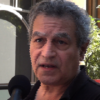A change in government in Ecuador in May 2017 led to the eventual revocation of Assange's asylum without due process and in likely violation of Ecuadorian national law and the 1954 United Nations Convention on the Status of Refugees. The convention stipulates that no asylee can be expelled to a territory "where his life or freedom would be threatened."
Assange was eventually dragged out of the embassy by British police on April 11, 2019. His fears of extradition to the U.S. were realized when the U.S. indicted him on 17 charges under the Espionage Act and one charge of computer intrusion. Imprisoned in the high security Belmarsh Prison with terrorists and other violent criminals, Assange has had restricted access to visitors, including with his lawyers. Nils Melzer, the U.N. special rapporteur on torture, visited Assange in his cell and reported that he was suffering from psychological torture.
Assange faces an extradition hearing at Woolwich Crown Court that begins the week of Feb. 24 and will continue in May. (Consortium News will be in London to provide extensive coverage in print and video.)
In a normal case, Assange's indictment would be thrown out after it was revealed that the prosecuting government was spying on Assange's privileged conversations with his attorneys in the Ecuador Embassy.
Both U.S. indictments against Assange spell out the exact work of investigative reporting. The indictment on intrusion alleges that Assange helped Manning gain access to a government computer, which the indictment acknowledges Manning had security clearances to legally access.
What the indictment alleges is that Assange egged Manning on for more information and tried to help her, unsuccessfully, to sign in under an administrative user name to help her do what every reporter must do, hide their sources' identity. The second indictment likewise accused Assange of practicing journalism by encouraging his source to provide classified documents.
In his 2010 article Parry said in his investigative reporting he did the exact things Assange had done, even encouraging his sources to commit a crime if it could prevent a larger crime from occurring. He wrote:
"The process for reporters obtaining classified information about crimes of state most often involves a journalist persuading some government official to break the law either by turning over classified documents or at least by talking about the secret information. There is almost always some level of 'conspiracy' between reporter and source. ... In most cases, I played some role either large or small in locating the classified information or convincing some government official to divulge some secrets. More often than not, I was the instigator of these 'conspiracies.'"
At the time Parry wrote his article, the Obama administration had empaneled a grand jury to consider charging Assange under the Espionage Act for publishing leaked secrets, which Parry defended as the core work of investigative journalism. Ultimately, then Attorney General Eric Holder decided against indictment, because of what the administration called its "New York Times problem."
That was an acknowledgement that Assange was a journalist and that prosecuting him for doing what the Times and other big media also do would open them up to prosecution as well. The First Amendment prevailed until the Trump administration brushed aside the very same problem and charged Assange with espionage.
The 1917 Espionage Act, derived from the 1889 British Official Secrets Act, outlaws any unauthorized possession and/or dissemination of classified information. Journalists have for decades possessed and published state secrets without consequence. This is what makes Assange's case an unprecedented assault on freedom of the press and the First Amendment.
Recognition of Threat to the Press
At the time of his arrest, even long time critics of Assange acknowledged the threat to press freedom it posed. In an editorial, The New York Times wrote:
"The new indictment ... is a marked escalation in the effort to prosecute Mr. Assange, one that could have a chilling effect on American journalism as it has been practiced for generations. It is aimed straight at the heart of the First Amendment.
"The new charges focus on receiving and publishing classified material from a government source. That is something journalists ...do all the time. " This is what the First Amendment is designed to protect: the ability of publishers to provide the public with the truth."
The Times praised Assange's work:
Next Page 1 | 2 | 3 | 4 | 5 | 6 | 7
(Note: You can view every article as one long page if you sign up as an Advocate Member, or higher).





